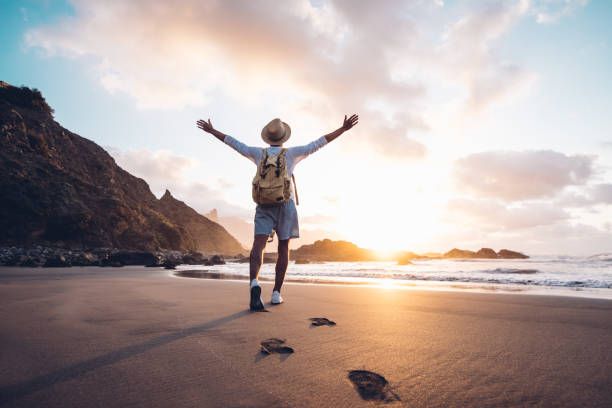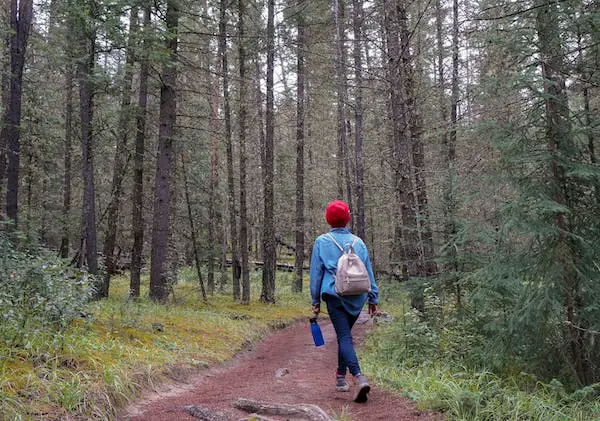15 Tips For a Unique & Exciting Solo Adventure

Solo adventure is a type of travel that is gaining popularity among people who are looking for unique and exciting experiences. It involves embarking on a journey alone, without the company of family or friends.
Solo adventure can be a thrilling and rewarding way to travel, allowing individuals to explore new places and challenge themselves in ways they may not have thought possible.
One of the most significant benefits of solo adventure is the freedom it provides. When traveling alone, you can make your itinerary, choose your destinations, and do what you want without compromising on anyone's preferences.

It also offers the chance to meet new people and form connections with locals, creating a more authentic and meaningful travel experience.
Solo adventure can also help individuals develop self-reliance and self-confidence. When traveling alone, you have to rely on yourself to solve problems and navigate unfamiliar surroundings. This can lead to a sense of independence and a boost in self-esteem.
Additionally, solo travel can help individuals step outside their comfort zone and face challenges they may not have encountered before, such as language barriers, cultural differences, or unexpected situations.

While solo adventure can be exciting, it's important to take safety precautions. Before embarking on a solo journey, research your destination thoroughly, and be aware of any potential safety concerns.
Make sure to inform someone of your itinerary and check-in regularly. Additionally, trust your instincts and avoid situations or people that make you feel uncomfortable or unsafe.
Solo adventure is not for everyone, and some may prefer traveling with companions. However, for those who are up for the challenge, solo travel can be a life-changing experience.

It offers the opportunity to explore new places, challenge oneself, and develop independence and self-confidence. With proper planning and safety precautions, solo adventure can be a safe and rewarding way to travel.
Embarking on your first solo adventure can be an exciting but nerve-wracking experience. To help make the most of your journey, here are 15 tips to consider before setting out:
1. Plan ahead

Planning ahead is an essential aspect of any successful venture, including a solo adventure. Here are some tips to help you plan ahead for your solo adventure:
1. Research your destination: Before embarking on your solo adventure, research your destination thoroughly. Learn about the culture, customs, and attractions of the place you'll be visiting.
2. Set a budget: Determine how much money you'll need for your trip and set a realistic budget. Consider costs such as transportation, accommodation, food, and activities.
3. Create an itinerary: Make a list of the places you want to visit and the activities you want to do. This will help you make the most of your time and ensure you don't miss out on anything.
4. Book accommodations in advance: To ensure you have a place to stay, book your accommodations in advance. Consider staying in hostels, Airbnb's, or hotels.
5. Purchase travel insurance: It's important to have travel insurance in case of unexpected situations such as illness, injury, or theft.
6. Check visa requirements: Depending on your destination, you may need a visa to enter the country. Make sure to check the visa requirements and apply for one if necessary.
7. Inform loved ones: Before leaving, inform your loved ones of your travel plans, itinerary, and emergency contact information.
8. Pack appropriately: Pack light and only bring the essentials. Consider the weather and activities you'll be doing when packing.
9. Stay safe: Research safety concerns and take necessary precautions such as avoiding unsafe areas, keeping valuables secure, and staying aware of your surroundings.
10. Have a backup plan: It's always good to have a backup plan in case things don't go according to plan. This could include having extra money, a backup accommodation option, or a backup mode of transportation.
By planning ahead, you'll be better prepared for your solo adventure and can enjoy your trip to the fullest.
2. Pack Light

When embarking on a solo adventure, packing light can make your journey more comfortable, convenient, and stress-free. Here are some tips to help you pack light for your solo adventure:
1.Choose the right bag: Invest in a high-quality backpack or suitcase that is comfortable, durable, and lightweight.
2. Make a list: Before packing, make a list of the essential items you'll need for your trip. This will help you avoid overpacking and ensure you don't forget anything important.
3. Pack versatile clothing: Bring clothing that can be mixed and matched and can be dressed up or down. Avoid bulky items or clothing that can only be worn once.
4. Pack for the weather: Check the weather forecast for your destination and pack accordingly. Bring layers that can be added or removed as needed.
5. Pack toiletries in travel-sized containers: To save space, bring travel-sized toiletries such as shampoo, conditioner, and body wash. Alternatively, you can purchase these items at your destination.
6. Use packing cubes: Packing cubes can help you organize your belongings and maximize space in your bag.
7. Consider laundry options: If you're traveling for an extended period, consider bringing a travel-sized laundry detergent and doing laundry on the go. This will allow you to pack fewer clothing items.
8. Limit electronics: Bring only the essential electronics such as a phone, camera, and charger. Avoid bringing bulky items such as laptops or tablets.
9. Wear bulky items on the plane: If you need to bring bulky items such as a jacket or boots, wear them on the plane to save space in your bag.
10. Leave room for souvenirs: If you plan on purchasing souvenirs, leave some space in your bag to bring them home.
By packing light, you'll have less to carry and more freedom to explore during your solo adventure. Remember to only bring the essentials and consider your destination and activities when deciding what to pack.
3. Stay in hostels or Airbnb's

Whether to stay in hostels or Airbnb's depends on personal preferences, budget, and the type of travel experience one is looking for.
Hostels are a good option for budget-conscious travelers who want to meet other travelers and socialize. Hostels usually offer shared dormitory-style accommodation and communal areas where guests can mingle and exchange travel tips.
They are often located in central areas and provide easy access to public transportation and tourist attractions. However, the shared accommodation may not suit everyone's comfort level, and privacy can be limited.
On the other hand, Airbnb's are a good option for travelers who want more privacy and flexibility. They offer a range of accommodation options, from private rooms to entire apartments or houses.
They can be a good option for families, couples, or groups of friends who want to stay together and have more space. Airbnb's also offer the opportunity to stay in unique and local neighborhoods and experience local life. However, they can be more expensive than hostels, and not all Airbnb's are located in central areas.
Ultimately, the decision to stay in hostels or Airbnb's depends on the individual's preferences and travel style. Both options have their advantages and disadvantages, and it's important to consider what's most important for your trip, such as budget, location, and level of social interaction.
